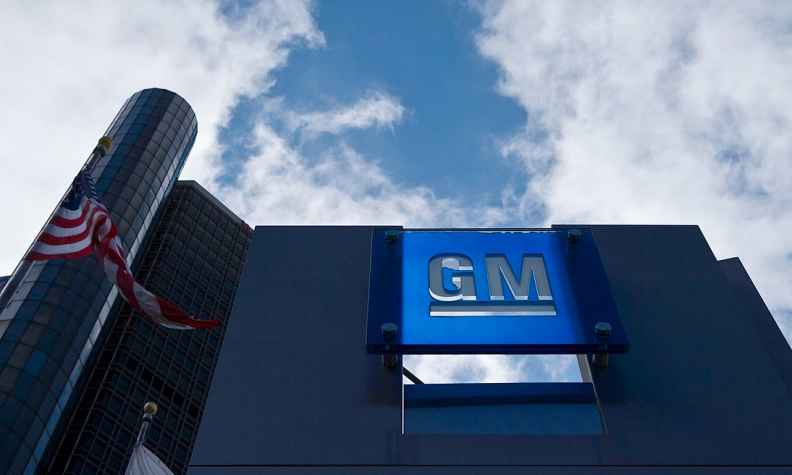DETROIT (Bloomberg) -- The lending unit of General Motors Co. said the Department of Justice subpoenaed documents related to its subprime lending practices.

The July 28 subpoena covers documents related to origination and securitization of subprime loans since 2007, GM Financial said in a filing today with the Securities and Exchange Commission. The Justice Department also is seeking information on underwriting criteria and warranties.
“Our understanding is that the request is focused on the subprime auto finance space in general,” Chrissy Heinke, a company spokeswoman, said today in an e-mailed statement.
“There are no allegations set forth in the subpoena and GMF is cooperating with the request.”
The inquiry by federal prosecutors adds another challenge for GM CEO Mary Barra, who is already grappling with a separate Justice Department investigation over the automaker’s slow handling of potentially fatal defects in millions of its small cars. While that crisis has roiled for six months, GM’s U.S. sales have kept increasing with new products such as the Chevrolet Tahoe and Buick Encore.
Easy credit has helped fuel industrywide U.S. auto sales, which are on pace for the best year since 2006. GM and Ford Motor Co. each reported jumps of more than 9 percent in auto deliveries for July as drivers continued to snap up SUVs . Chrysler Group LLC’s sales soared 20 percent. Overall industry sales rose 9 percent in July.
Ralph Kisiel, a spokesman for Chrysler, said he wasn’t immediately able to comment on whether the the third-largest U.S. automaker had been contacted by the Justice Department. Margaret Mellott, a spokeswoman for Ford Motor Credit, the financing arm of the second-largest U.S. automaker, didn’t immediately respond to a voice mail requesting comment.
“There’s just so much capacity being added and so much more room for easy auto credit to keep pushing ultra-low monthly payment loans on a lower and lower quality of consumer,” Adam Jonas, an industry analyst with Morgan Stanley, wrote in a note to investors today. “As one dealer recently told us -- ‘You have to be a loser to not get 0 percent for 72 months on your car loan.’”
AmeriCredit purchase
GM Financial represents the automaker’s efforts to rebuild its ability to finance cars in-house after selling off 51 percent of then-GMAC to Cerberus Capital Management LP in 2006.
Following a bankruptcy reorganization in 2009, the automaker in 2010 purchased Fort Worth, Texas-based AmeriCredit Inc., which it renamed GM Financial, for $3.5 billion to write loans for subprime consumers and boost car sales. In late 2012, GM announced a deal to purchase Ally Financial Inc.’s international operations to help expand GM Financial’s efforts overseas.
The Justice Department has been looking closely at the auto lending industry. In December, Ally agreed to pay a record $98 million to settle Justice Department and regulatory claims that the firm helped car dealers inflate the cost of auto loans to black and Hispanic borrowers.
Since 2011, Ally Financial has caused about 235,000 minority borrowers to pay higher rates, according to a complaint filed in December at federal court in Detroit. Ally was required to pay $80 million to settle the U.S. civil allegations and $18 million to resolve parallel claims by the Consumer Financial Protection Bureau, according to a Justice Department statement.
Subprime lending
The Justice Department and CFPB are investigating other lenders for similar practices, Eric Halperin, acting deputy assistant attorney general, said in December.
The subprime auto segment has ballooned since contracting following the financial crisis. Private-equity firms, attracted by the high margins, have flocked to the business during the past three years. New York-based Blackstone Group LP acquired Irving, Texas-based subprime lender Exeter Finance Corp. in 2011, the same year that Perella Weinberg partnered with CarFinance Capital LLC.
The influx of new firms to the business has fueled concern that companies are lowering underwriting standards to win business.
“Subprime auto lending from banks, captive finance companies and credit unions continues to increase and is pressuring more traditional subprime lenders to lend to even weaker borrowers to maintain lending volumes,” Moody’s Investors Service analysts led by Peter McNally wrote in a January report.
Issuance of securities backed by the debt had reached $10 billion this year through May 30, up 5 percent from the pace a year earlier, according to Wells Fargo & Co. Total sales of $17.6 billion last year were more than double the $8 billion sold in 2010, when securitized-debt markets started to revive after all but shutting down amid the 2008 financial crisis.
Investors are snapping up the bonds as the Federal Reserve suppresses interest rates, pushing investors to buy riskier assets to get higher yields.









Post your comment